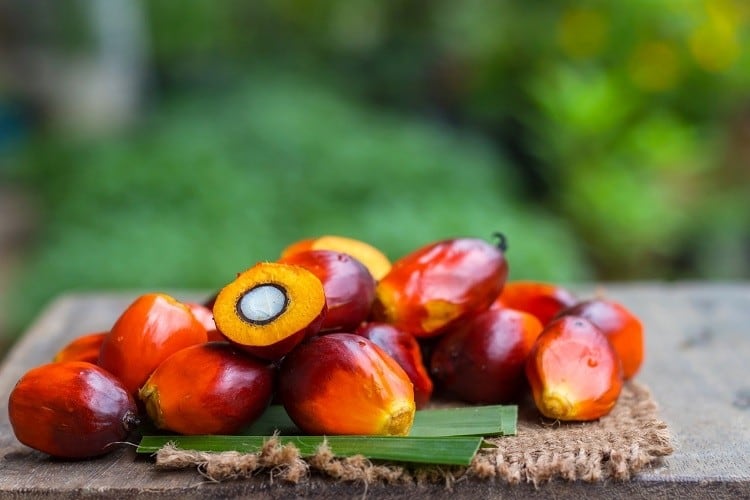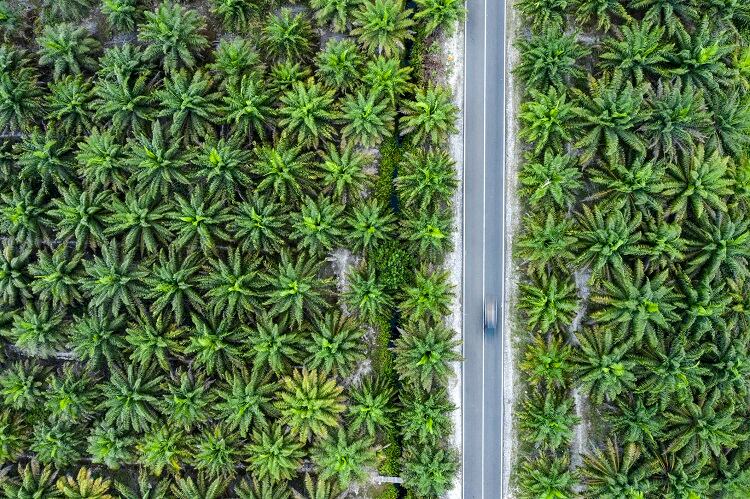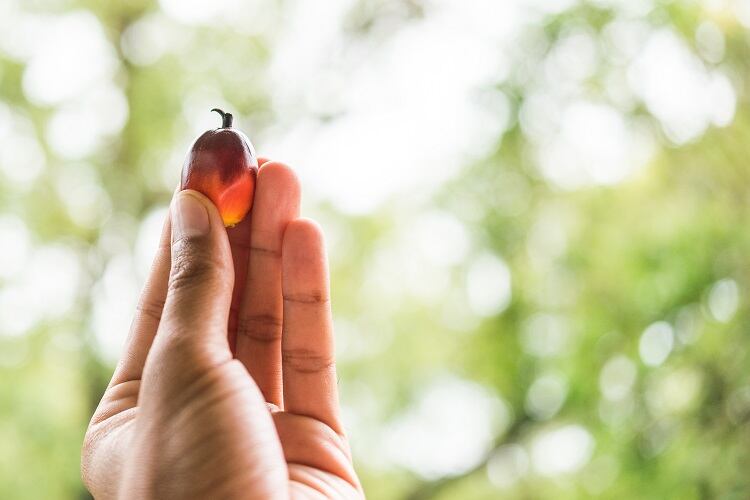The ‘first mile’ of the commodities supply chain presents a particular challenge. This is the stage from plantation to mill, when raw materials like palm oil are often mixed with non-verified sources. This means that origin information is ‘lost or hidden’, Unilever explained.
The company believes that blockchain can help strengthen traceability in that ‘first mile’ of its palm oil supply chain.
“This technology absolutely can help Unilever and partners to manage the complexities that come from very long supply chains – particularly for crops that are at risk of being linked to deforestation – by providing additional transparency to the movement of the commodity and visibility of its unique attributes,” Andrew Wilcox, Senior Manager, Sustainable Sourcing and Digital Programmes at Unilever, explained.
Boosting traceability with blockchain
GreenToken has been developed by German software corporation SAP. Unilever has conducted a successful proof of concept in Indonesia, where it applied GreenToken to source more than 188,000 tons of oil palm fruit.
“With GreenToken, we want to bring the same traceability and supply chain transparency to bulk raw materials that you get from scanning a bar or QR code on any consumer product,” Nitin Jain, Co-founder and General Manager of GreenToken by SAP, said. “Our solution allows companies to tell what percentage of palm oil products they purchased is from a sustainable origin and track it to the end consumer product.”
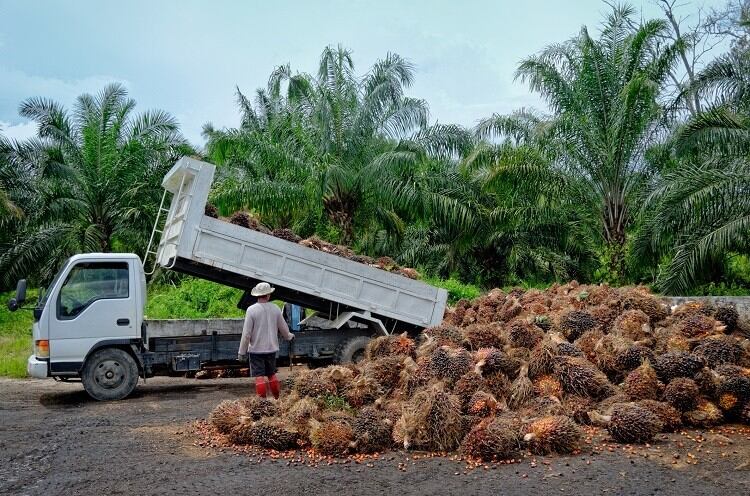
The GreenToken solution helps Unilever track, verify and report in near real-time the origins and journey that palm oil takes through its long and complex supply chain.
“By working with GreenToken by SAP, we can capture data about the commodity, including the conditions under which it was grown or harvested. Then we build on it to capture supply chain information and pass [this] down our supply chain intact through digital tokens. Giving every physical unit of a commodity its own data attributes enables a ‘virtual segregation’ of data even in long and complex supply chains where commodities may be commingled. For example, crops that are sustainably sourced being mixed with those that are not,” Unilever’s Wilcox told FoodNavigator.
“Our work with GreenToken by SAP, and projects with other partners, will give us much richer data about the commodities that are entering our supply chain – from sourcing origins to biodiversity in crop growing regions and more.”
Through the initial pilot, GreenToken enabled palm supplier Golden Agri-Resources and other palm oil companies from whom Unilever sources to create tokens that ‘mirror the material flow of the palm oil’ throughout the supply chain and capture the unique attributes linked to the oil’s origin.
Golden Agri-Resources had already been working with technological solutions to help strengthen supply chain transparency and participation in the Unilever pilot provided the Indonesian palm group with some ‘useful’ takeaways, Chief Sustainability and Communications officer Anita Neville noted. “Technology has played an important role in our efforts to enhance visibility and transparency in our own palm oil supply chains. Our participation in the GreenToken pilot with SAP and Unilever provided useful insights in how to successfully pass information between different actors in the supply chain,” she said.
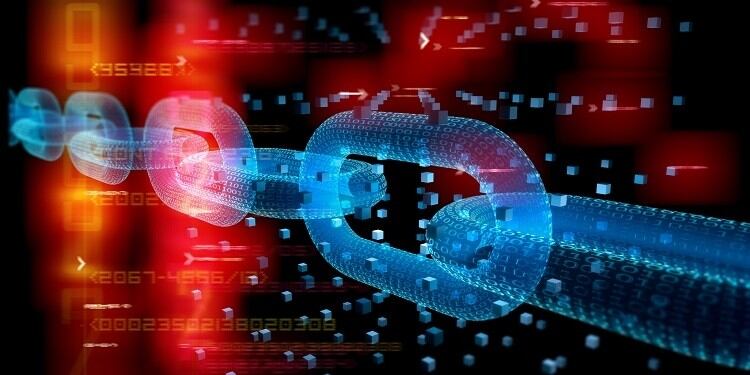
Importantly, Wilcox added, GreenToken relies on existing practices to generate the data. “The system leverages existing business processes like creating purchase orders, goods receipts and weighbridge logs, to originate and transfer these indivisible and unreproducible commodity tokens and keep the accounting transparent at each stage of the supply chain. This makes the system potentially scalable and robust, even when the supply chain contains multiple layers of trading and processing."
Supporting smallholder inclusion
Today, 13 million hectares of forests are being lost every year. Unilever is first focusing its efforts to end deforestation on its supply chains for palm oil, paper and board, tea, soy and cocoa. With an agricultural footprint of 3 million hectares these supply chains contribute 65% of the company’s total impact on land. They are also the crops that are most often linked to deforestation and conversion of natural ecosystems to farmland.
In a similar way, the group is targeting its initial blockchain efforts on areas that have an ‘outsized’ impact: tropical forests. “We think this is especially relevant for smallholders in warmer climates, who are often located next to the planet’s most exceptional biodiversity, the most carbon rich forests and peatlands and often the most endangered ecosystems, where their production decisions have the most outsized impacts,” Wilcox explained.
In Indonesia, where the blockchain initiative was piloted, large palm plantations are professionally operated and managed. Palm sourced from these big players can be verified as deforestation-free relatively easily. This means that, if a company wants to ensure its supply chain isn’t linked to deforestation, sourcing from a big player can be a simple answer.
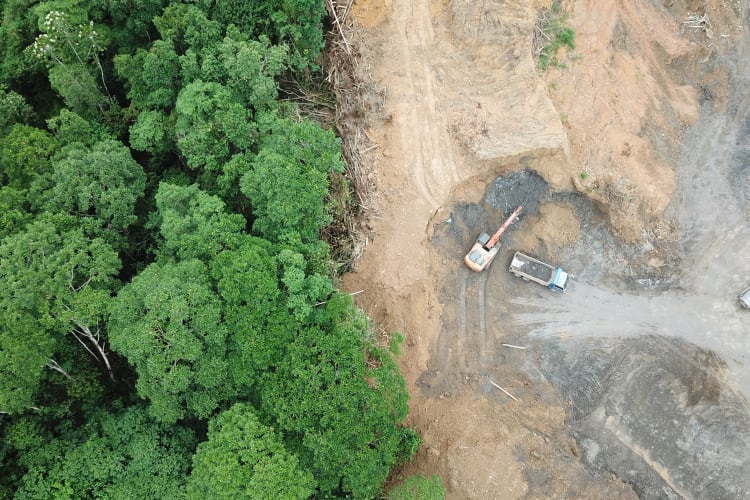
However, this approach carries a number of drawbacks in terms of the social and economic development of smallholders. In a country where 40% of palm is produced by smallholders, it also fails to tackle deforestation and would simply result in the development of a two-tier market. If deforestation in countries like Indonesia is to be addressed, smallholder inclusion is paramount.
Unilever believes that its use of blockchain ‘will be transformational for smallholder inclusion’, Wilcox told this publication outlining three key points that will support engagement.
Firstly, the sustainability expert explained, use of blockchain establishes ‘location as a commodity attribute’. “Every unit of material that Unilever buys and tracked with a blockchain solution could be traced to a specific point in space and time. Ensuring smallholders are visible is critical so with our suppliers and partners we can accelerate and scale up our work on smallholder inclusion in our sourcing footprint,” Wilcox said.
GreenToken by SAP also helps establish ‘sustainability as a journey’, he continued. “We recognise that it can be quite difficult for many smallholder farmers to meet the rigorous demands of most sustainability standards. Huge investments are necessary and smallholder farmers and local governments might lack the resources required to aid this shift quickly. Indeed, Unilever already runs some of the largest programs in the industry to help smallholders attain sustainable practices.
“This ‘virtual segregation’ enabled by blockchain, and paired with first-mile traceability data, can capture information about the smallholders’ farming practices and environment to show the effort and progress made by smallholders towards sustainability. Reflecting reality, smallholders will be able to show the improvements they’ve made on a ‘scale’ instead of a yes/no option – which will help to bring sustainable transitions into reach for many more smallholders.”
It also gives Unilever the tools to incentivise continuous improvement, which Wilcox said can be a challenge even for smallholders who have achieved sustainable certification. “Once a producer becomes recognised as sustainable, there is little incentive for them to continue to progress and adopt further sustainable practices, for example to sequester more carbon or protect more biodiversity than they needed to satisfy the minimum requirements. The tokens’ ability to convey data on a ‘scale’ of improvement enables measurement and therefore the potential to better incentivise improvement and positive impact,” he detailed.
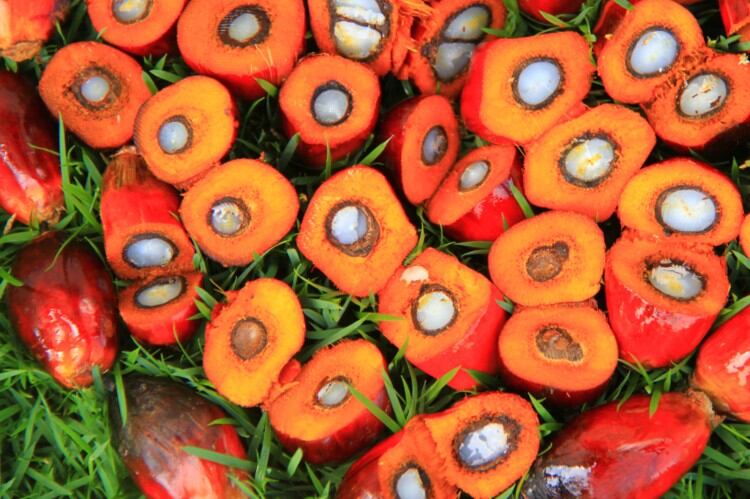
An integrated digital and physical ecosystem
While Unilever sees great opportunity in GreenToken by SAP, blockchain innovation and adoption alone can only get the company so far towards its zero-deforestation target. Unilever is developing a data ecosystem that goes beyond any one solution to drive change, the digital sourcing expert told us.
“While we think this technology is transformational… we recognise that blockchain commodity tokens on their own cannot change conditions on the ground or directly influence farmers’ decisions. This is why Unilever is building a suite of technology solutions with different partners, designed to all be complementary to each other and to interact with a data ecosystem.”
Unilever has worked with SAP to design GreenToken to accommodate different first mile traceability systems. The group is also working with Orbital Insight and other partners on anonymised device geolocation signals. “We are developing an appropriate framework and technical infrastructure to leverage this technology at scale in diverse commodity geographies that would plug in to GreenToken’s solution and make generating the location data on the tokens much lower friction,” Wilcox explained.
The blockchain data will also be integrated into Unilever’s satellite monitoring systems. “Once we receive tokens with location data, we will be able to integrate them into our geospatial platform which has Google Earth Engine at its core. This means that we can cross reference the origins of a commodity against sustainability impacts and relate this to our relationships with suppliers on a granular volumetric basis.
“In short, as the data ecosystem on our geospatial platform is updated and becomes richer, we get an increasingly clearer idea of the environmental impact of our sourcing and actions we can take to help protect and regenerate nature. The work in this space is evolving incredibly rapidly, and we are actively collaborating with others such as through the Forest Data Partnership we’ve launched with USAID, UN FAO, WRI, NASA and Google to continue to accelerate research in this space and align action based on the data.”
Alignment with suppliers and other stakeholders on the ground also remains key, Wilcox stressed. This ‘tech stack’ must be in support of engagements with suppliers, jurisdictional approaches, and communities. This, Wilcox explained, is an area ‘where our teams invest enormous time and resources’. “This technology has the potential to support those actions by making the information about origins available to downstream users.”

